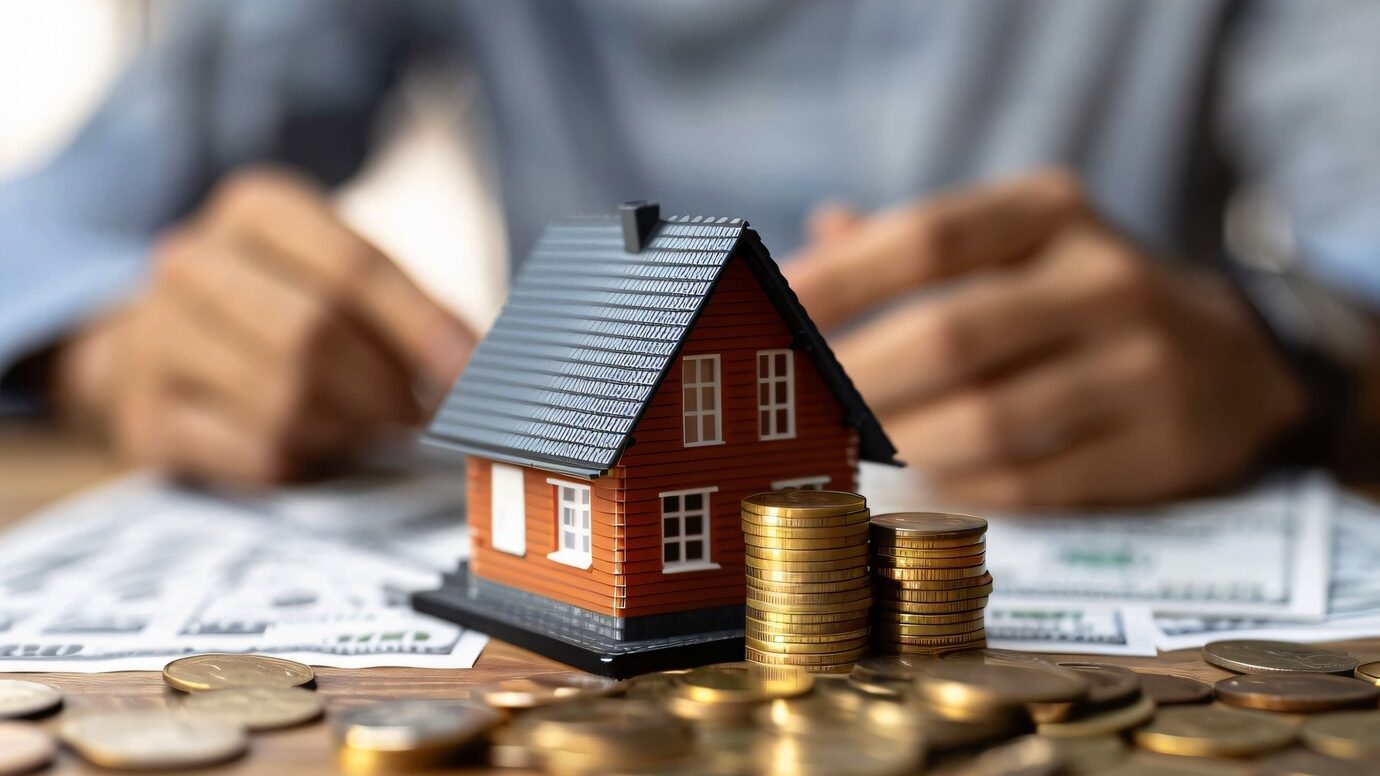Anúncios

Why Determining Home Value Matters
Determining a home value is essential for homeowners, whether you plan to sell, refinance, or just want to track your largest financial asset. Knowing your home’s value provides a clear picture of where you stand financially and can influence key decisions related to your property.
Impact on Selling Price
One of the most important reasons to determine your home’s value is to set an accurate selling price. If you price your home too high, you risk deterring potential buyers, leading to a prolonged time on the market. On the other hand, if you price it too low, you may sell quickly but leave money on the table. An accurate valuation ensures that you strike the right balance, attracting buyers while maximizing your return.
Moreover, knowing your home’s value helps you confidently negotiate with buyers. When you understand your property’s worth based on comparable homes in your area, you can back up your asking price with solid data, giving you an edge in negotiations.
Refinancing and Home Equity Loans
Determining home value is also crucial when considering refinancing or taking out a home equity loan. Lenders use your home’s current value to assess your equity, which directly impacts your loan approval and the terms you’ll receive. For example, if your home’s value has increased significantly since you purchased it, you may be eligible for better refinancing rates or qualify for a larger home equity loan.
Additionally, knowing your home’s value helps you make informed decisions about renovations or improvements. Understanding how much equity you have available can guide your spending on upgrades that could further increase your property’s value.
Using Online Tools to Calculate Your Home’s Value
With today’s technology, it’s easier than ever to get a quick estimate of your home’s value. Online tools, such as house value calculators, can provide an initial snapshot of your property’s worth based on current market conditions. These tools are popular among homeowners because they are free, convenient, and accessible from anywhere. However, it’s essential to recognize their limitations and use them as part of a broader strategy to determine your home’s value.
House Value Calculator Free Tools
Many websites offer house value calculator free tools that generate an estimate of your home’s value within minutes. These tools pull data from public records, recent sales, and market trends to provide a rough estimate. Popular platforms like Zillow’s Zestimate or Realtor.com’s home value estimator allow you to input your address and receive a figure based on the most up-to-date information available.
These calculators are a great starting point, especially if you’re curious about how your home’s value has changed over time. They also allow you to compare your property’s estimated worth to similar homes in your area, giving you a general sense of the local market.
Limitations of Online Estimators
Also, determining a home value through online calculators is convenient, but those methods aren’t foolproof. These tools rely on algorithms that may not account for specific details about your property, such as recent renovations, unique features, or neighborhood dynamics that affect your home’s value. For instance, if you’ve recently remodeled your kitchen or upgraded your landscaping, the calculator may not reflect these enhancements in its estimate.
Furthermore, online estimators can sometimes produce widely varying results, leading to confusion. Therefore, it’s important to use these tools as a starting point but not as the final word on your home’s value. Combining the results with other methods, like a professional appraisal or a Comparative Market Analysis (CMA) from a real estate agent, will give you a more accurate and comprehensive understanding of your home’s true worth.
Working with Professionals to Estimate Your Home’s Value
While online tools can provide a rough estimate of your home’s value, working with professionals offers a more accurate and comprehensive assessment. Professional real estate agents and licensed appraisers have the expertise and resources to evaluate your property in detail, considering factors that automated tools might overlook.
Real Estate Agents
Real estate agents play a crucial role in helping you determine home value, especially when preparing to sell. Agents use a method called Comparative Market Analysis (CMA) to estimate your home’s value. This approach involves analyzing recent sales of similar properties in your neighborhood, considering factors like square footage, number of bedrooms and bathrooms, and overall condition. A real estate agent’s knowledge of the local market allows them to adjust for specific characteristics that may impact your home’s value, such as proximity to schools, parks, or transportation hubs.
Additionally, real estate agents can provide insights into current market trends, helping you set a competitive price that attracts buyers without undervaluing your property. Their expertise is particularly valuable if you plan to sell your home quickly while maximizing your return.
Home Appraisers
For an official and legally recognized valuation, a licensed home appraiser is the professional to turn to. Home appraisers conduct detailed inspections of your property, evaluating everything from the foundation to the roof. They assess the condition of your home, the quality of materials used, and any improvements you’ve made. Appraisers also compare your home to recent sales in the area, much like real estate agents, but their evaluations are more detailed and often required by lenders during the mortgage or refinancing process.
An appraisal provides an unbiased, third-party estimate of your home’s value, which can be crucial for transactions involving financing. While appraisals come at a cost, they offer a precise and reliable figure, making them indispensable for refinancing, home equity loans, or resolving disputes over property value.
Factors Influencing Your Home’s Value
Your home’s value isn’t determined in a vacuum. Several factors influence how much your property is worth, ranging from its location to broader economic conditions. Understanding these factors can help you make strategic decisions, whether you’re planning to sell, refinance, or invest in upgrades.
Location, Location, Location
One of the most significant factors in determining your home’s value is its location. Real estate professionals often say that location is everything, and for a good reason. Homes in desirable neighborhoods tend to command higher prices due to factors such as:
- Proximity to good schools: Properties near top-rated schools are in high demand, which drives up their value.
- Access to amenities: Homes near parks, shopping centers, restaurants, and public transportation are more attractive to buyers, increasing their worth.
- Safety: Low crime rates in a neighborhood can significantly boost property values.
Even if two homes are identical in size and condition, their values can differ dramatically based on their locations. Therefore, the desirability of your neighborhood plays a crucial role in how much your home is worth.
Market Conditions
In addition to location, market conditions heavily influence your home’s value. Real estate markets fluctuate based on supply and demand, interest rates, and the overall health of the economy. For example, in a seller’s market—where there are more buyers than available homes—property values tend to rise. Conversely, in a buyer’s market, where there is an excess of homes for sale, values may decline as sellers compete for fewer buyers.
Other economic factors, such as interest rates and inflation, also play a role. Lower interest rates often encourage more buyers to enter the market, driving up demand and, consequently, home prices. On the other hand, rising interest rates can cool the market, reducing the number of buyers and potentially lowering property values.


